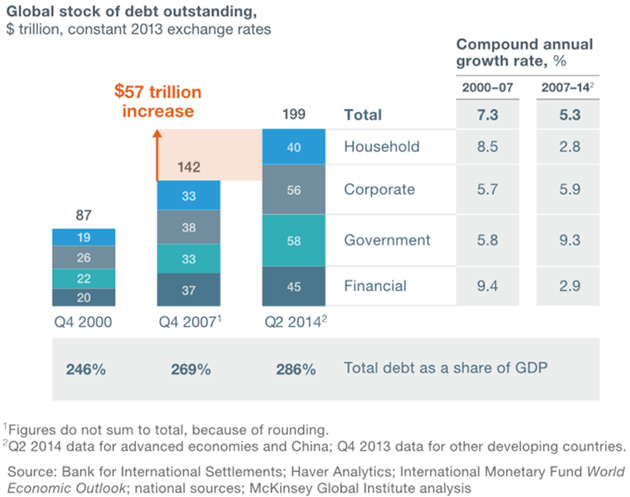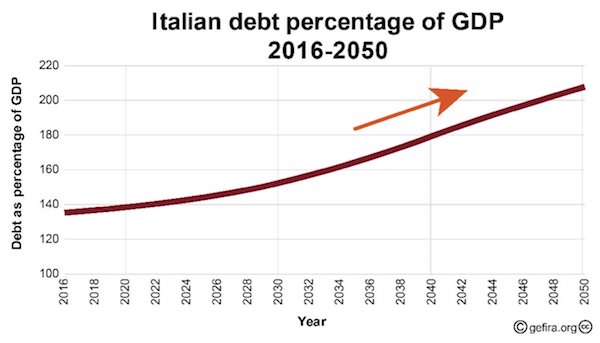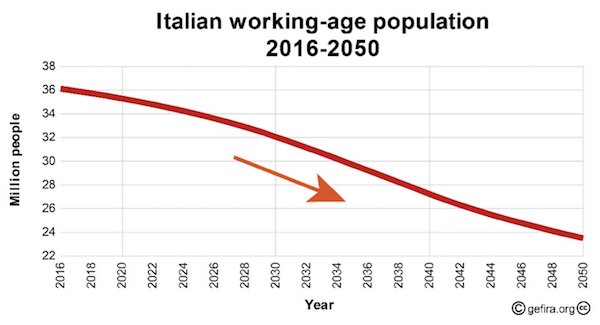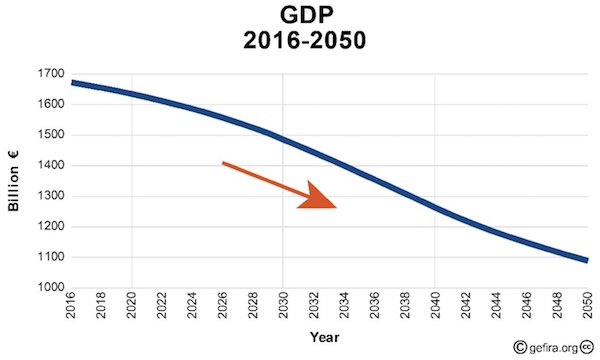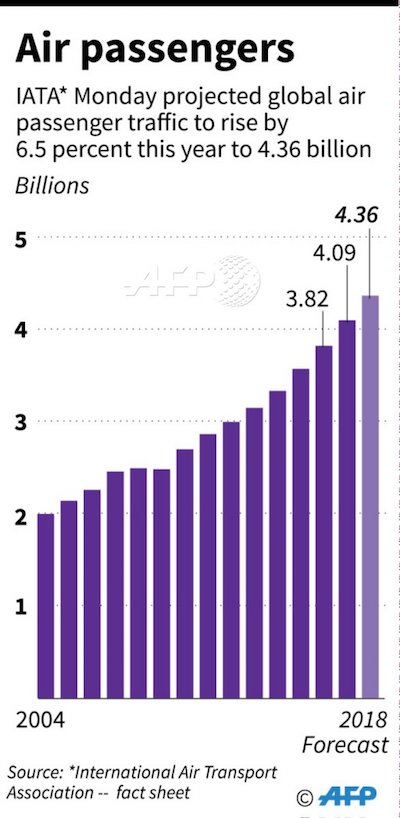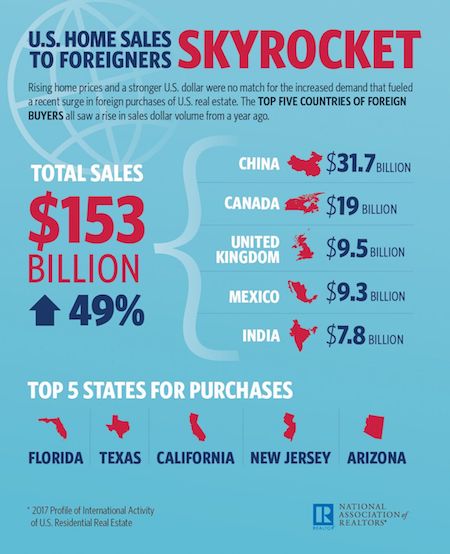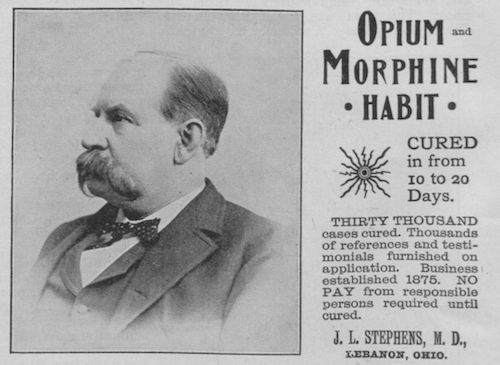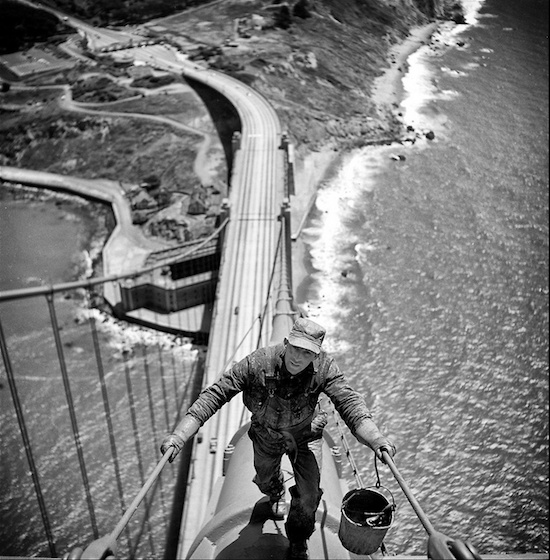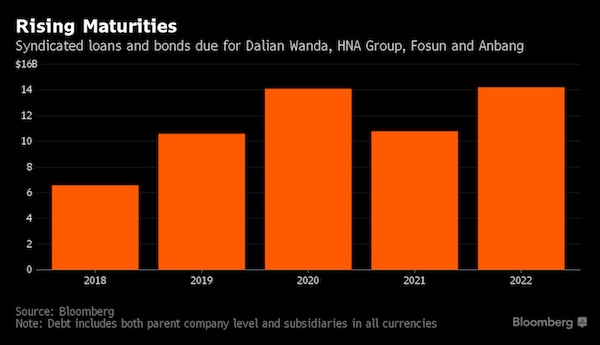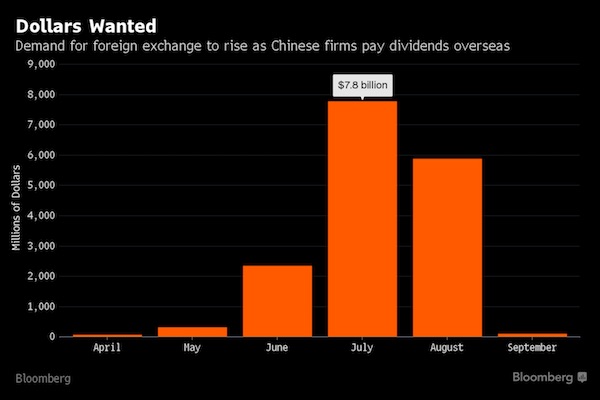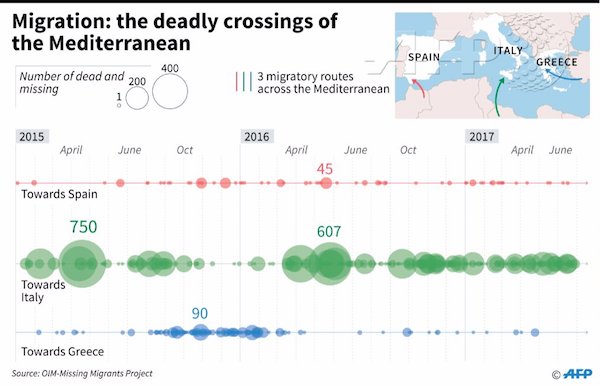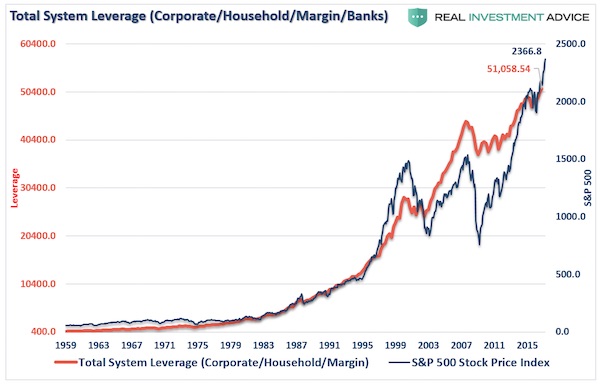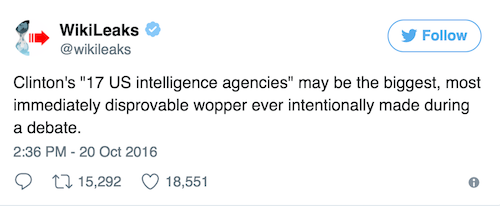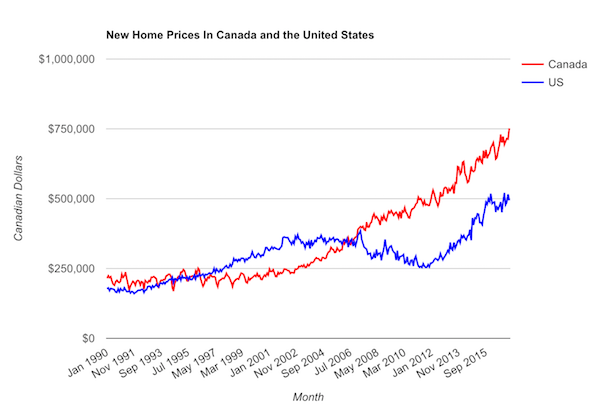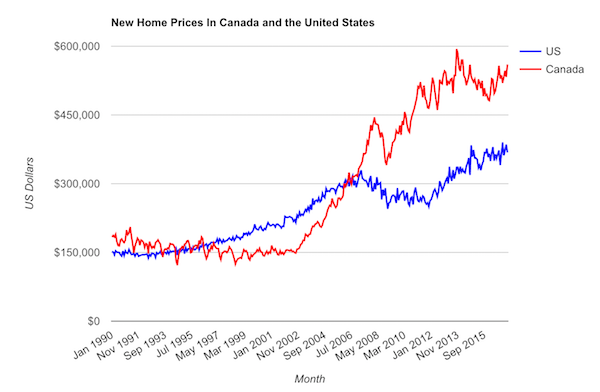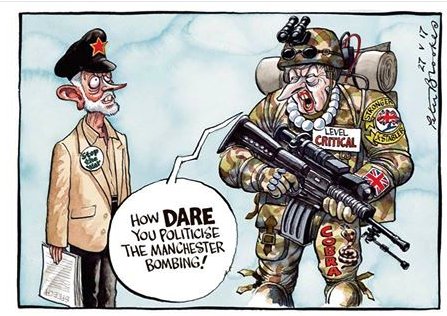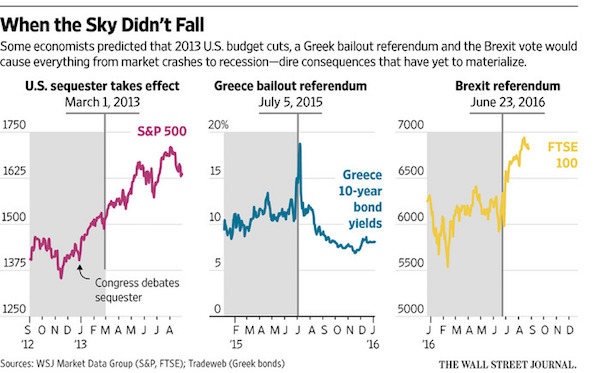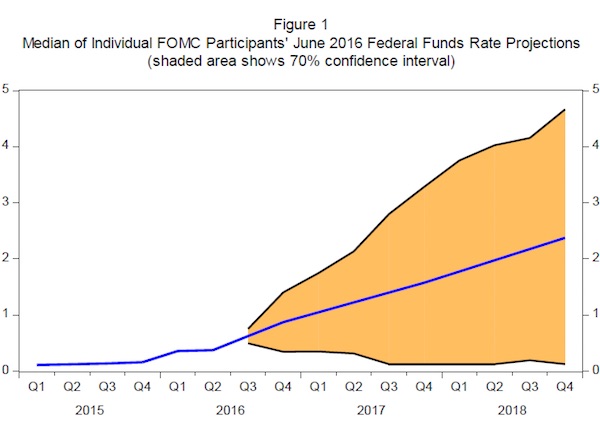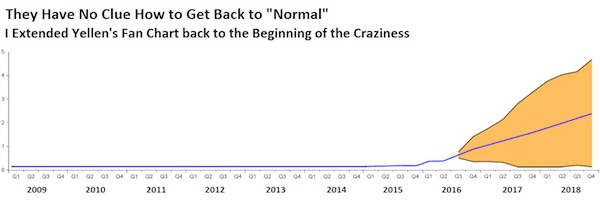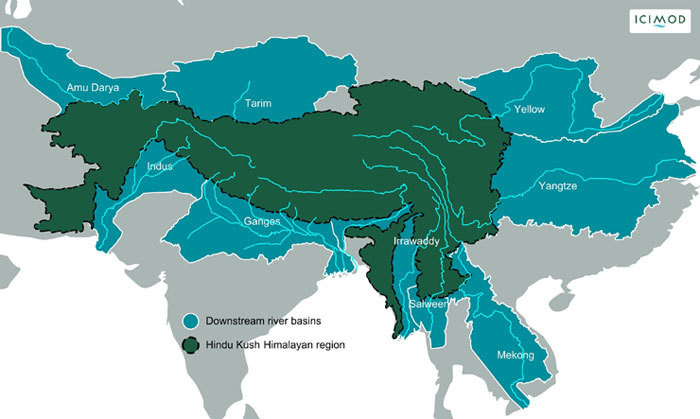
George Grosz Apocalyptic landscape 1936

This morning Merkel’s coalition partner, Horst Seehofer, said ‘I can not work with this woman anymore’. Looks like game could be over.
• Is Merkel’s Reign Nearing A Frustrated End? (G.)
For nearly 14 years as Germany’s chancellor, Angela Merkel has defined and personified Europe’s middle ground: pragmatic, consensual, mercantilist, petit-bourgeois, above all stable. It is little wonder the leader of Mitteleuropa’s major economic power has dominated the political centre for so long. But what if Merkel falls? Can the centre hold? These are increasingly urgent questions as the once unassailable “Mutti” struggles to hold together a fractious coalition. The immediate issue, which is likely to come to a head on Monday, is a furious row over EU immigration policy. But other problems are piling up, with unpredictable consequences for Europe’s future cohesion.
Merkel’s political obituary has been written many times, but now the final draft is nearing completion. She is under fire from the hard-right, anti-immigrant Alternative für Deutschland (AfD), which stormed into the Bundestag last autumn. She has problems with the failing, unpopular Social Democrats on her left, on whom she depends for support. More seriously, though, Merkel is being challenged from within by her interior minister, Horst Seehofer, former chairman of Bavaria’s rightwing CSU, which is allied to Merkel’s Christian Democrats. In sum, Seehofer is demanding Germany no longer admit migrants who have first entered the EU via other member states – which is nearly all of them.
In Merkel’s view, such a bar would be illegal and would wreck her efforts – ongoing since the 2015 Syrian refugee crisis, when Germany accepted 1 million migrants – to create a balanced, EU-wide policy of voluntary migrant quotas. She says Seehofer should wait for this month’s EU summit to come up with a joint plan. The problem with that approach is twofold. Seehofer’s CSU, which faces a critical electoral clash with the AfD in October, complains that the EU has been trying and failing to agree this for years. Another objection, as her critics see it, is that most Germans, recalling her 2015 “open door” policy, do not trust Merkel on this issue. Polls indicate 65% back tighter border controls.
Last week’s row between France and Italy, sparked by Rome’s decision to refuse entry to a ship, the Aquarius, carrying 629 migrants rescued off Libya, showed how improbable is the prospect of agreement at the Brussels summit. Italy’s new populist leadership, in common with an emerging axis of nationalist-minded governments in Austria, Hungary and Poland, believes it has a mandate to halt the migrant flow. Meanwhile, so-called “frontline states” such as Greece, Spain and Italy accuse “destination states” such as Germany, France and the UK of failing to accept a fair share of migrants. Divisions have been exacerbated by the failure, so far, of a key Merkel-backed initiative, the multibillion-euro EU Emergency Trust Fund for Africa, to reduce migration by addressing “root causes” in places such as Nigeria, Eritrea and Somalia.

And this is of course far too late. This summit should have been held 3 years ago. And it should be a UN summit, not some talks with Greece and Italy. Give Africa a voice. And Central America. Stop inviting xenophobia.
• Merkel Wants to Hold Urgent Summit With EU States on Migration Issues (Sp.)
German Chancellor Angela Merkel wants to hold an urgent summit dedicated to the migration crisis and to discuss this issue with a group of the EU member states, local media reported. The Bild newspaper reported Saturday citing own sources in the leadership of several EU countries that Merkel would like to discuss migration-related issues with leadership of Austria, Greece, and Italy. According to the media outlet, a final decision about the date of the summit has not been made yet, however it could take place later in the month. Earlier, Italy’s Prime Minister Giuseppe Conte, called for reforms of EU asylum rules, proposing that the EU set up centers to process asylum claims in migrants’ countries of origin. France’s President Emanuel Macron also stressed the need to modify current migration rules and criticizing the European Union for not sharing the burden with Rome over the migrant crisis.

This comes at a bad time given Merkel’s problems.
• Italy Bars Two More Refugee Ships From Ports (G.)
Italy’s interior minister has sparked a new migration crisis in the Mediterranean by barring two rescue boats from bringing refugees to shore, a week after the Auarius was prevented from docking. “Two other ships with the flag of Netherlands, Lifeline and Seefuchs, have arrived off the coast of Libya, waiting for their load of human beings abandoned by the smugglers,” Matteo Salvini, the leader of the anti-immigrant party the League, wrote on his Facebook page. “These gentlemen know that Italy no longer wants to be complicit in the business of illegal immigration, and therefore will have to look for other ports [not Italian] where to go.”
Italy’s closure of its ports to the migrant rescue ship Aquarius, which was carrying 620 people, triggered warnings from aid agencies of a deadly summer at sea for people trying to cross the Mediterranean. Axel Steier, the co-founder of Mission Lifeline which operates the Lifeline ship, said his crew had rescued more than 100 migrants off Libya on Friday in an operation with a US warship, and transferred them to a Turkish merchant vessel. He said his ship was too small to make the journey from Libya to Italian ports and that he always transferred migrants to other ships, but insisted those craft should have the right to land in Italy.
“I am sure there is an obligation for Italy to take them because its closest safe harbour is Lampedusa. We hand over migrants to Europe because of the Geneva convention,” he said. Vessels chartered by an assortment of European NGOs have plied the waters off Libya for three years, rescuing migrants from leaking boats and transporting them to Sicily.

Greece, Italy and now Spain.
• Spain Rescues More Than 900 Boat Migrants, Finds Four Bodies (R.)
Spain’s coast guard rescued 933 migrants and found four dead bodies in the Mediterranean Friday and Saturday, as the country prepared for the arrival of a charity rescue ship that was denied a port by Italy and Malta. The number of people fleeing poverty and conflict by boat to Spain doubled last year and is likely to rise again in 2018, according to the EU border agency, potentially pushing migration up the national political agenda. Spanish Prime Minister Pedro Sanchez has already made migrant-friendly moves in his first two weeks in the job, offering to take in the rescue ship Aquarius with 629 people on board and pledging free healthcare to undocumented migrants. The coast guard said on Twitter it had rescued 507 people from 59 small dinghies in the Gibraltar strait, where it also found the four bodies.

Kudos to Sanchez. But what comes next?
• First Migrants From Aquarius Rescue Ship Arrive At Spanish Port (Sky)
The first boat of the Aquarius convoy carrying 630 people, who have become the focus of a pan-European disagreement over migration, has docked in Valencia. The Italian coast guard vessel Dattilo arrived in the Spanish port just before 7am local time on Sunday, and will be followed by the Aquarius and another Italian navy ship, the Orione. The migrants were rescued a week ago off the coast of Libya and have been at sea ever since after the Italian government refused to allow the vessel they were aboard to dock in Italy. Among those rescued are seven children aged under five, 32 children aged between five and 15 years, 61 young people aged from 15 to 17 and 80 women, seven of whom are pregnant.
They were rescued in several different operations last weekend after Italian coastguard vessels reported a group of small rubber dinghies off the coast of Libya. The Aquarius, a charity rescue vessel operated by French charities SOS Mediterranee and Medecins Sans Frontieres (MSF), picked up more than a hundred people in a complex night-time rescue before being asked by the Italian authorities to take on board hundreds more people they had recovered. However the Italian interior minister, Matteo Salvini, then refused to allow the Aquarius to dock at Italian ports, fulfilling an election pledge to stop the arrival of migrants from Africa. Malta also refused to allow them to dock there, arguing that the Italians had assumed responsibility for the rescue operations.

More kudos for Sanchez. France is moving.
• Spain Says France To Take In Aquarius Ship Migrants (AFP)
Madrid said Saturday it had accepted an offer from France to take in migrants from the Aquarius rescue ship, currently en route to Spain with more than 600 people on board. “The French government will work together with the Spanish government to handle the arrival of the migrants” scheduled for Sunday, Spain’s deputy prime minister Carmen Calvo said in a statement. “France will accept migrants who express the wish to go there” once they have been processed in Valencia, the statement said. The vessel is at the heart of a major migration row between European Union member states.
Chartered by a French aid group, the vessel rescued 629 migrants including many children and pregnant women off Libya’s cost last weekend. Italy’s new populist government and Malta refused to let it dock in their ports, accusing each other of failing to meet their humanitarian and EU commitments. Spain eventually stepped in and agreed to receive the refugees. France – who had angered Rome by branding it irresponsible over the vessel rejection – offered Thursday to welcome Aquarius migrants who “meet the criteria for asylum”.

Still negotiating.
• Trump Keeps His Promises On Trade (AFP)
By inflicting tariffs on the steel and aluminum of his allies, and then on tens of billions of dollars in goods from China, US President Donald Trump has quickly moved to fulfill the tough campaign pledges he made on trade. During his first year in office, Trump and his top economic aides made repeated threats and warned that preliminary investigations were launched into whether certain imports were being unjustly subsidized. But no concrete steps were taken. That all changed in March, when the “America First” president went on the offensive. “What happened for a period of time is the president was constrained by different members” of his administration, said Edward Alden, a specialist on US economic competitiveness at the Council on Foreign Relations.
“But the president has become increasingly confident in his own judgment on these issues… He is willing to do radical things he promised during his campaign and for many years before that.” In its latest move, the White House on Friday announced stiff 25 percent tariffs on Chinese imports, sparking immediate retaliation from Beijing. The move, which Trump justified as payback for the theft of American intellectual property and technology, reignited a trade spat between the world’s two largest economies, spooking markets and worrying business leaders.
It came on top of the tariffs on Chinese steel and aluminum that went into effect in late March – measures that prompted Beijing to slap punitive duties on 128 US goods, including pork, wine and certain pipes. Since June 1, steel and aluminum imports from the European Union, Canada and Mexico have been hit with tariffs of 25 percent and 10 percent, respectively. Trump has seemingly opted to go with his gut, sometimes over the protestations of his closest aides.

Since there is no glut of soybeans globally, this looks improbable.
• China Tariffs On US Soybeans Could Cost Iowa Farmers Up To $624 Million (DMR)
Perhaps Iowa farmers’ biggest fear is becoming a harsh reality: The escalating U.S.-China trade dispute erupted Friday, with each country vowing to levy 25 percent tariffs on $50 billion in goods. U.S. and Iowa agriculture is caught in the crossfire, with farmers selling $14 billion in soybeans to China last year, its top export market. Soybeans are among hundreds of U.S. products China has singled out for tariffs. The U.S. has an equally long list that includes taxing X-ray machines and other Chinese goods. Iowa farmers could lose up to $624 million, depending on how long the tariffs are in place and the speed producers can find new markets for their soybeans, said Chad Hart, an Iowa State University economist.
U.S. soybean prices have fallen about 12 percent since March, when the U.S.-China trade dispute began. “Any tariff or tax put in place will have a significant impact, not only to the U.S. soybean market but to Iowa’s, because we’re such a large producer,” Hart said Friday. Iowa is the nation’s second-largest soybean grower, producing 562 million bushels last year worth $5.2 billion. “It will slow down the market. Even with the tariffs in place, we will ship a lot of soybeans to China,” Hart said. “It just won’t be nearly the amount we did before. “It’s likely to still be our largest market even with these tariffs in place.”

Word.
• Mattis: Putin Is Trying To “Undermine America’s Moral Authority” (CJ)
At a graduation ceremony for the US Naval War College (barf), US Secretary of Defense James Mattis asserted that Russian President Vladimir Putin “aims to diminish the appeal of the western democratic model and attempts to undermine America’s moral authority,” and that “his actions are designed not to challenge our arms at this point but to undercut and compromise our belief in our ideals.” This would be the same James Mattis who’s been overseeing the war crimes committed by America’s armed forces during their illegal occupation of Syria.
This would be the same United States of America that was born of the genocide of indigenous tribes and the labor of African slaves, which slaughtered millions in Korea, Vietnam, Cambodia, Iraq, Libya and Syria for no legitimate reason, which is partnered with Ukrainian Nazis, jihadist factions in Syria and Iranian terror cultists, which supports 73 percent of the world’s dictators, which interferes constantly in the electoral processes of other countries as a matter of policy, which stages coups around the world, which has encircled the globe with military bases, whose FBI still targets black civil rights activists for persecution to this very day, which routinely enters into undeclared wars of aggression against noncompliant governments to advance plutocratic interests, which remains the only country ever to use nuclear weapons on human beings after doing so completely needlessly in Japan, and which is functionally a corporatist oligarchy with no meaningful “democratic model” in place at all.
A casual glance at facts and history makes it instantly clear that the United States has no “moral authority” of any kind whatsoever, and is arguably the hub of the most pernicious and dangerous force ever assembled in human history. But the establishment Russia narrative really is that cartoonishly ridiculous: you really do have to believe that the US government is 100 percent pure good and the Russian government is 100 percent pure evil to prevent the whole narrative from falling to pieces. If you accept the idea that the exchange is anything close to 50/50, with Russia giving back more or less what it’s getting and simply protecting its own interests from the interests of geopolitical rivals, it no longer makes any sense to view Putin as a leader who poses a unique threat to the world. If you accept the idea that the west is actually being far more aggressive and antagonistic toward Russia than Russia is being toward the west, it gets even more laughable.

“Currency in Circulation vs. GDP is increasing on all continents..”
• Consumers Stubbornly Cling to Cash (DQ)
The last month has been an unhappy time for daydreamers of a cashless nirvana. Following weeks of disruptive tech failures, payment outages, and escalating cyber fraud scams, much of it taking place in Britain, consumers have been reminded of one of the great benefits of physical cash: it is accepted just about everywhere and does not suddenly fail on you. The findings of a new study by UK-based online payments company Paysafe, partly owned by US private equity giant Blackstone, confirm that consumers on both sides of the Atlantic continue to cling to physical lucre. For its Lost in Transaction report, Paysafe surveyed over 5,000 consumers in the UK, Canada, the US, Germany, and Austria on their payment habits.
One of its main findings is that 87% of consumers used cash to make purchases in the last month, while 83% visited ATMs, and 41% are not interested in even hearing about cash alternatives. “Despite the apparent benefits of low-friction payment technologies, these findings suggest many consumers aren’t ready to lose visibility of the payment process,” says Paysafe Group Chief Marketing Officer Oscar Nieboer. “It’s clear that the benefits are not unilaterally agreed upon, with cultural and infrastructure trends at play, and it may be some time before adoption is widespread.” Although consumers continue to cling to cash, they appear to be carrying less of it: 49% overall in the survey and 55% of U.S. respondents said they carry less cash now than they did a year ago.
The average American consumer carries $42 today — that’s $8 less than in 2017. In the UK the average amount carried in 2017 was £33; that has now fallen to £21. But that does not mean that the amount of cash in circulation is dwindling. On the contrary, according to this year’s G4S cash report, the world average ratio of currency vs GDP continues to rise, reaching 9.6% in 2018. “Currency in Circulation vs. GDP is increasing on all continents, indicating a consistent, growing demand for cash across the world,” says the report. South America has by far the highest cash dependency relative to its GDP, with an average ratio of over 16%.

First you kill it, then it needs to be revived. How much of the £20 billion goes to repairing the damage already done?
• May To Unveil £20 Billion A Year Boost To NHS Spending (G.)
Taxpayers are to be asked to help fund a £20bn a year injection of extra cash into the National Health Service by 2023-24 that will pay for thousands more doctors and nurses, while cutting cancer deaths and improving mental health services, Theresa May will say today. The announcement, before the NHS’s 70th birthday next month, will represent the biggest funding boost since Gordon Brown imposed a one percentage point rise in National Insurance to pay for more NHS spending in his 2002 budget, in the face of Tory claims that Labour was slapping a “tax on ordinary families”.
Government sources said the increases, which would be paid for in part by a “Brexit dividend”, would amount to around £600m a week extra for the NHS in cash terms within six years. Health and social care secretary Jeremy Hunt said last night that the government wanted to “show the world what a cutting-edge 21st-century healthcare system can look like”. He added: “This long-term plan and historic funding boost is a fitting birthday present for our most loved institution. Like no other organisation could ever hope to be, the NHS is there for every family at the best and worst of times, from the wonder of birth to the devastation of death, living and breathing those very British values of decency, fairness and compassion.
He said the extra cash “recognises the superhuman efforts made by staff over the last few years to maintain services in the face of rapidly growing demand. But it also presents a big opportunity for the NHS to write an entirely new chapter in its history”. Details of how the public will be required to pay through tax rises, and the proportion of the funding increases they will pay for, will not be spelled out until the budget, because of ongoing arguments involving the chancellor Philip Hammond, Hunt, and No 10.

70% of Greeks is against the deal, protests are everywhere. But he pushed it through. In Foreign Policy, someone suggested giving him a Nobal Peace Prize for it. But, but, democracy…
• Greece, FYROM To Sign Name Change Accord Sunday (K.)
Greece and the Former Yugoslav Republic of Macedonia (FYROM) are set to sign a historic accord to modify the latter’s name after Greek Prime Minister Alexis Tsipras survived a no-confidence vote in Parliament Saturday. The accord is to be signed in the Prespes region, a lake district which borders Greece, FYROM and Albania, by the two countries’ foreign ministers Sunday. Tsipras and his FYROM counterpart Zoran Zaev will both attend the ceremony, along with UN mediator Matthew Nimetz and other European officials – including the European Union’s foreign policy chief Federica Mogherini and European Neighborhood Policy and Enlargement Negotiations Commissioner Johannes Hahn.
Following the ceremony, members of the two delegations will hold a working lunch in the town of Otesevo, in FYROM. Security at the event is expected to be ultra-tight. A protest against the deal will be held in the nearby village of Pisoderi. On Saturday, after more than two days of vehement debate in Parliament, Greece’s SYRIZA-led government survived a no-confidence vote brought against it by the main opposition New Democracy party, but with one less MP. The motion garnered 127 votes with 153 against. The junior coalition partner Independent Greeks (ANEL) backed the government despite its opposition to the name deal with FYROM that Tsipras announced last week, bar one MP, Dimitris Kammenos, who backed the motion. He was subsequently expelled from the party, reducing the government’s majority to 153.



